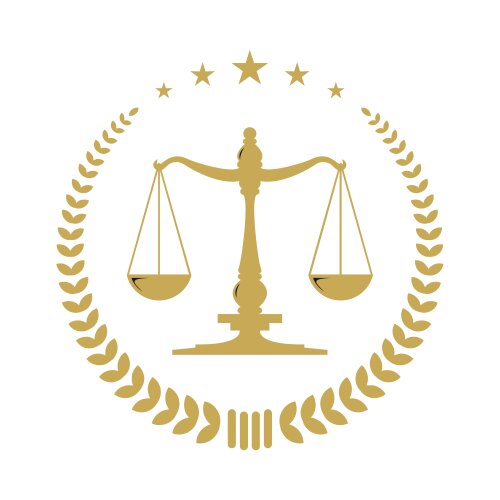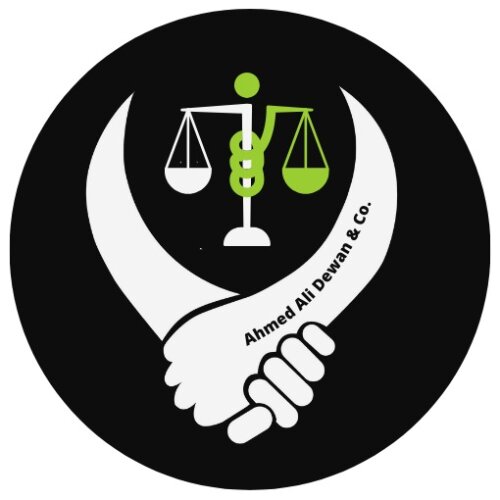Best Collaborative Law Lawyers in Pakistan
Share your needs with us, get contacted by law firms.
Free. Takes 2 min.
Free Guide to Hiring a Family Lawyer
Or refine your search by selecting a city:
List of the best lawyers in Pakistan
About Collaborative Law in Pakistan
Collaborative Law in Pakistan is an alternative dispute resolution process that empowers parties to resolve conflicts through cooperative means, rather than through traditional litigation. This approach involves both parties, along with their collaborative lawyers, working together to reach a mutually satisfactory settlement. It is commonly used in family law disputes such as divorce or child custody but can be applied to other areas like business or contract disputes. The goal of Collaborative Law is to promote open communication and fair agreements in an effort to preserve relationships and minimize the emotional and financial costs associated with contentious legal battles.
Why You May Need a Lawyer
Engaging a lawyer skilled in Collaborative Law can be beneficial in a variety of scenarios. Individuals going through family changes, like divorce or separation, often require professional guidance to navigate legal complexities while aiming for amicable outcomes. Business partners facing disagreements over contract terms or management decisions may also seek collaborative lawyers to avoid costly litigation and preserve business relationships. Additionally, collaborative lawyers can assist in inheritance or property disputes, ensuring that the process is handled in a manner that respects family dynamics and legal requirements.
Local Laws Overview
In Pakistan, Collaborative Law is not as established as in some Western countries, but it is growing in recognition as an effective dispute resolution method. Local laws related to family matters, contractual disputes, and property rights can play a significant role in collaborative processes. The family laws, primarily governed by The Muslim Family Laws Ordinance and The Dissolution of Muslim Marriages Act, set the framework for negotiations. In business contexts, The Companies Act and Contract Act provide necessary legal guidelines. Overall, while the adversarial litigation system remains prevalent, Collaborative Law offers a framework for parties to peacefully negotiate disputes, supported by a specialized understanding of relevant statutes.
Frequently Asked Questions
What is the main benefit of Collaborative Law compared to litigation?
The main benefit of Collaborative Law is that it facilitates a cooperative approach to conflict resolution, which can save time, reduce costs, and preserve relationships compared to adversarial litigation.
Can Collaborative Law be applied to all types of disputes?
While it is most effective in family law matters, Collaborative Law can be adapted to resolve business disputes, property issues, and other civil conflicts.
Is the agreement reached through Collaborative Law legally binding?
Yes, agreements reached through the Collaborative Law process are legally binding once they are finalized and endorsed by the court if necessary.
How is Collaborative Law different from mediation?
Unlike mediation, where a neutral third party helps facilitate a resolution, Collaborative Law involves attorneys who actively participate and advocate for their clients while working towards a mutually agreeable solution.
What happens if the collaborative process fails?
If the collaborative process fails, parties have the option to pursue traditional litigation. However, the lawyers involved in the collaborative process typically cannot represent the clients in subsequent litigation.
Do I need to disclose all relevant information during the process?
Yes, open disclosure of relevant information is a fundamental principle of Collaborative Law to ensure fair negotiation and settlement.
How long does the Collaborative Law process usually take?
The timeline varies based on the complexity of the issues and the willingness of both parties to cooperate. It may take weeks to a few months to reach a resolution.
What role do attorneys play in the Collaborative Law process?
Attorneys in Collaborative Law act as advocates for their clients, providing legal guidance while helping negotiate terms and ensuring that the settlement aligns with legal standards.
Can Collaborative Law be used in cross-border disputes?
Yes, Collaborative Law can be applied to cross-border disputes, especially in matters involving international family law or business agreements.
Are there any specific skills I should look for in a collaborative lawyer?
Look for a lawyer with specialized training in collaborative practice, strong negotiation skills, and experience in the relevant area of law, whether family, business, or another field.
Additional Resources
For individuals seeking further information or assistance, several resources can be helpful. The Pakistan Bar Council can provide information on certified collaborative lawyers. Local bar associations often offer resources and directories of lawyers specializing in various fields. The Family Courts in major cities also provide guidance and information on alternative dispute resolution methods.
Next Steps
If you believe Collaborative Law could be beneficial for your situation, the next step is to consult with a lawyer specializing in this field. Make a list of your key concerns and objectives to discuss during your consultation. It's advisable to interview multiple lawyers to find someone whose experience and approach align with your needs. Once your lawyer is selected, they will guide you through initiating the collaborative process, ensuring your interests are effectively represented and pursued.
Lawzana helps you find the best lawyers and law firms in Pakistan through a curated and pre-screened list of qualified legal professionals. Our platform offers rankings and detailed profiles of attorneys and law firms, allowing you to compare based on practice areas, including Collaborative Law, experience, and client feedback.
Each profile includes a description of the firm's areas of practice, client reviews, team members and partners, year of establishment, spoken languages, office locations, contact information, social media presence, and any published articles or resources. Most firms on our platform speak English and are experienced in both local and international legal matters.
Get a quote from top-rated law firms in Pakistan — quickly, securely, and without unnecessary hassle.
Disclaimer:
The information provided on this page is for general informational purposes only and does not constitute legal advice. While we strive to ensure the accuracy and relevance of the content, legal information may change over time, and interpretations of the law can vary. You should always consult with a qualified legal professional for advice specific to your situation.
We disclaim all liability for actions taken or not taken based on the content of this page. If you believe any information is incorrect or outdated, please contact us, and we will review and update it where appropriate.
Browse collaborative law law firms by city in Pakistan
Refine your search by selecting a city.

















